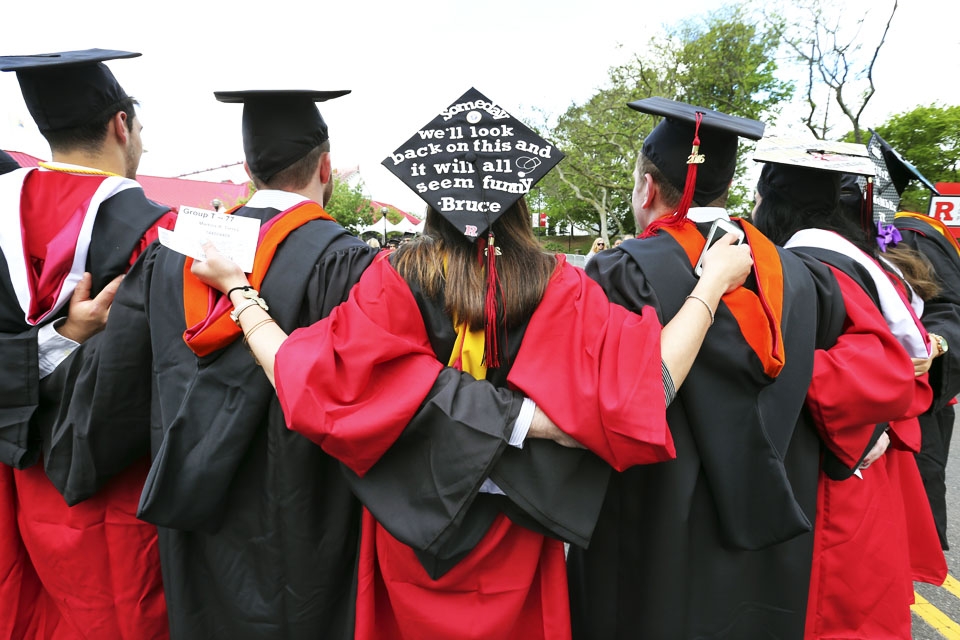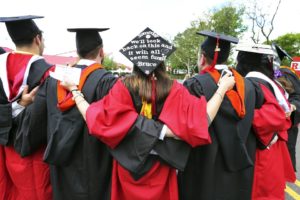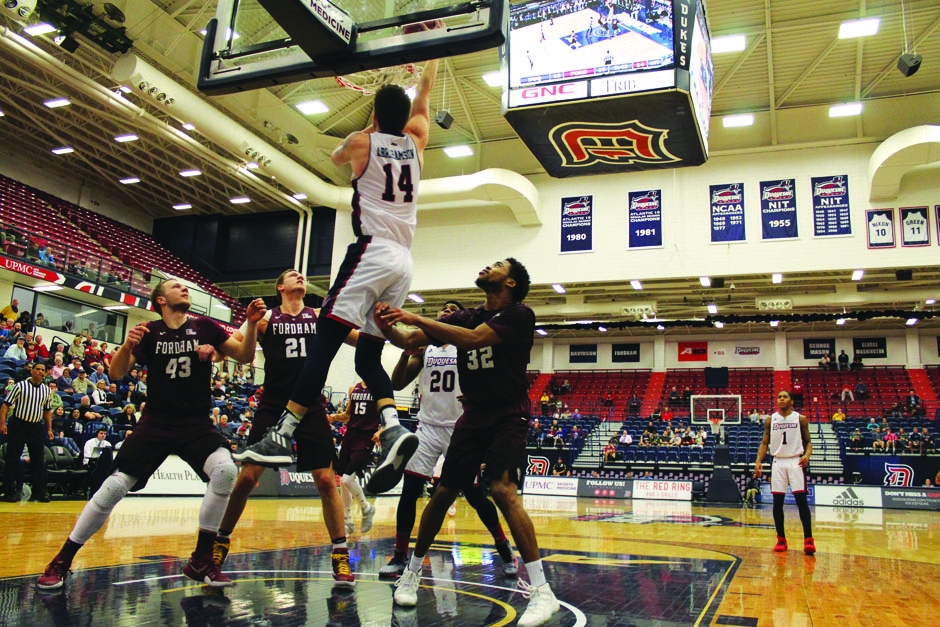
In this May 15, 2016 file photo, students embrace as they arrive for the Rutgers graduation ceremonies in Piscataway, N.J. Those graduating might find themselves stuggling with private student loans.

In this May 15, 2016 file photo, students embrace as they arrive for the Rutgers graduation ceremonies in Piscataway, N.J. Those graduating might find themselves stuggling with private student loans.
Raymond Arke | Asst. News Editor
The words “student loans” can strike fear in any college student’s heart. While they help many students afford college, sometimes the loaning system can hurt the people it is supposed to help.
Financial aid and loans can often appear confusing to many college students, according to Elizabeth Baylor, Director of Postsecondary Education at the Center for American Progress, a Washington D.C.-based public policy organization.
“It’s a big, looming thing when you’re in college,” Baylor said.
However, it is important to pay attention to one’s loans because some can be classified as “predatory.” This type of lending occurs when “the borrower is led into a transaction that is not what they expected,” according to the Washington State Department of Financial Transactions’ website.
Antony Davies, associate professor of economics at Duquesne, described predatory loaning as “simply a loan with a high interest rate.”
Often, predatory student loans come from private companies.
“Families end up in trouble when they go to private loans,” Baylor said.
She suggested sticking with loans from the federal government.
“Generally, borrowing from the Department of Education is a better bet than private loans,” she said.
This is because private companies often present a good deal on paper, but the fine-print on the loans often will raise the rates substantially, Baylor added.
According to John Falleroni, associate director of financial aid at Duquesne, in the 2015-16 school year, private student loans at Duquesne accounted for $28.9 million.
On the other hand, one of the federal government’s student loan programs has come under fire for being predatory. This program, called Parent PLUS, is not geared toward students.
Michael Grunwald, a senior staff writer for Politico, an online political journalism site, wrote a lengthy article on the PLUS program in 2015. From his experiences looking at Parent PLUS, he said that, while student loans are often quite helpful, these loans can be “a predatory racket.”
Rachel Fishman, a senior policy analyst specializing in education policy at New America, a nonpartisan think tank, explained how this type of loan is different.
“Unlike student loans … parents must apply for the loan and must undergo a credit check … If they have no adverse credit history, the parent can borrow up to the full cost of attendance for college,” she said.
Fishman said Parent PLUS loans are generally beneficial. However, they can hurt those who don’t have a detailed understanding of the system due to the limited financial background check the loans do. Low-income families may take out more than they can repay.
“Because Parent PLUS loans only look at a parent’s credit history, and they are not ‘allowed’ legally to look at their ability to repay currently, the federal government can extend low-income parents thousands upon thousands of dollars in debt,” she said.
Also, Fishman said that colleges and universities often “load up financial aid packages with these loans, making it seem like the bill is $0 even though the student is taking on debt via student loans, and the parent is taking on debt via Parent PLUS.”
Davies warned of the unintended consequences of all government loans.
“One unintended consequence is that the low rates encourage people who would actually do better in life with a technical education to go to college instead,” he said. This leads to students being stuck in debt because “they have attempted to develop skills that they don’t have, while allowing skills that they do have to atrophy.”
Falleroni said $25 million worth of Parent PLUS loans were used at Duquesne during the 2015-16 school year.
The damages of not paying back the loans are harsh.
“Where it gets even more problematic is the federal government can collect that loan if a parent defaults by garnishing wages, social security and seizing tax refunds,” Fishman said.
Baylor added that since parents of college students are aging, they are saddled with an unexpected financial burden as they near retirement. This leaves them “to make choices between retirement and student loans,” she said.
This is not to say all student loans are bad — they can help make college affordable to many Americans, according to Grunwald, who praised the practice.
“Student loans, in general, are a really good deal,” he said.
Baylor also said how helpful the programs, even Parent PLUS, can be.
“Parent PLUS loans help fill in gaps that are left after the student loans reach their cap,” she said.
Yet, there is little oversight when it comes to predatory student loan practices.
“It’s kind of the wild, wild West,” Baylor said.
There is essentially only one watchdog, the relatively new Consumer Financial Protection Bureau. Founded in 2008, their power is limited.
“They do some good oversight on student lending, but they don’t have regulatory control … they can give great advice,” Baylor said.
Protecting yourself falls into your own hands, she said.
“Pay attention to details of the loan agreement,” Baylor said.



